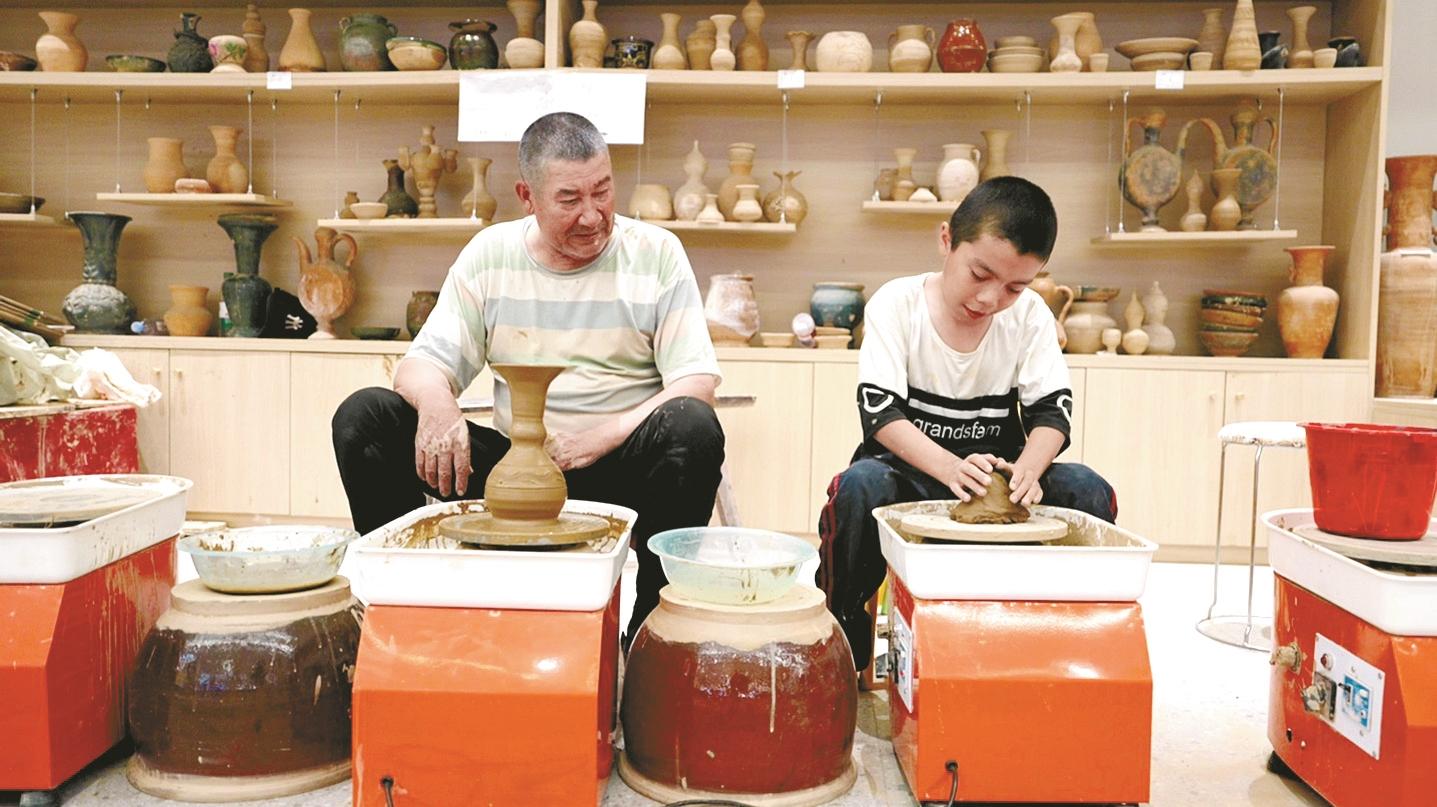By Zhao Yu
"Supporting Kuqa is Developing Ningbo." This slogan captures the essence of the enduring partnership between Ningbo and Kuqa in Xinjiang, which has flourished over fifteen years of paired assistance.
As a new phase of support to Xinjiang unfolds, Ningbo's efforts in the region continue to yield remarkable results. Through these initiatives, heartfelt stories of collaboration, bridging geography and ethnicity, have emerged, showcasing the lasting impact of this ongoing commitment.
Raising Mud Crabs in the Desert
Setting out from Kuqa and heading west down National Highway 217, the landscape gradually shifts from lush greenery to vast stretches of yellow sand. After a six-hour drive along the Taklamakan Desert, a vast square pond comes into view.
This pond serves as both the experimental field for Li Yuntao, a Ningbo University doctoral student in his late 20s, and a new habitat for Sanmen mud crabs.
"Look, these are the 1.2 million mud crab larvae we released at the end of April. They've molted four times now," said Li, holding a freshly caught crab at the breeding base of the Sixteenth Regiment, First Division of the Xinjiang Production and Construction Corps.
Li and his supervisor, Wang Huan, a specially appointed researcher and doctoral advisor at Ningbo University's School of Marine Sciences, have been promoting the technology of raising mud crabs on saline-alkali land. Their work has already seen success in Henan, Ningxia, Shaanxi, and other regions.
But could the mud crabs adapt to Xinjiang's unique soil and water conditions? That was the question during their first visit to Xinjiang in April last year. Li recalls, "Our location is right next to the desert, with vast areas of highly saline-alkali land. The roadsides are lined with endless corn or cotton fields. I wondered if the local people would even eat seafood."
A year later, that uncertainty has turned into success. The mud crabs harvested from the pond sold out immediately after harvest, fetching prices as high as 400 yuan per kilogram.
"I really didn't expect such strong demand. It shows that even inland consumers appreciate fresh seafood," said mud crab farmer Zhang Falong. Over the past year, he formed a strong partnership with Li. "I've got the hands-on know-how, he's got the data. Together, we're raising better crabs—bigger and tastier," Zhang said as they walked by the pond.
Building on the success of the pilot project, the Sixteenth Regiment of the First Division secured investment in late 2023 to establish Xinjiang San'a Agricultural Development Co., Ltd.
Over 25 million yuan will go into a new saline-alkali aquaculture farm at the regiment. Once fully operational, the farm is expected to create over 50 new jobs, benefit more than 300 farmers, and generate over 50 million yuan in output value.
Young Pottery Artisan in the Making
Walking along the ancient city wall of Kuqa, the dusty yellow landscape gives way to a burst of color—the Kuchean Intangible Cultural Heritage Workshop.
Inside the 1,200-square-meter space, 12-year-old Omar Kurban was spending his summer break the way he always has: learning the art of pottery from his grandfather. Seated at a wheel, Omar focused intently on shaping a small clay cup. "Since I was five, I've come here after school or during vacations to make pottery with grandpa," he says. "It's so much fun."
Nearby, his grandfather, 68-year-old Tursun Asan, was tallying the day's production. A seventh-generation clay pottery maker, Tursun is skilled in more than 200 styles and techniques. "While it's quiet in the morning, I'm preparing bases for a few pots ordered by visitors from Fujian," he said.
But business hasn't always been this steady. "We used to work out of our old home in Qingshui Village," Omar recalled. "Hardly any tourists came. The roads weren't good, and few people knew about our craft."
That began to change with the opening of the Kuchean Intangible Cultural Heritage Workshop—an initiative supported by Ningbo's aid program in Xinjiang. "The idea was to bring together artisans from Kuqa and nearby areas, and give them a place to showcase their skills," said an official from the Ningbo Aid Xinjiang Command. In 2023, the team invested 3 million yuan to repurpose an old grain warehouse on Restan Street, transforming it into a public exhibition space in just three months.
Now home to 25 types of intangible cultural heritage crafts, the workshop attracts more than 1,000 visitors a day. It offers hands-on activities, live demonstrations, digital exhibitions, and retail options, creating an immersive space where tradition and tourism meet.
After the crowds thin out, Omar returned to his wheel, fingers coated in clay as he shaped the next piece. "I want more people to know about Kuqa's pottery," he said. "And one day, I want to open a bigger workshop of my own."



